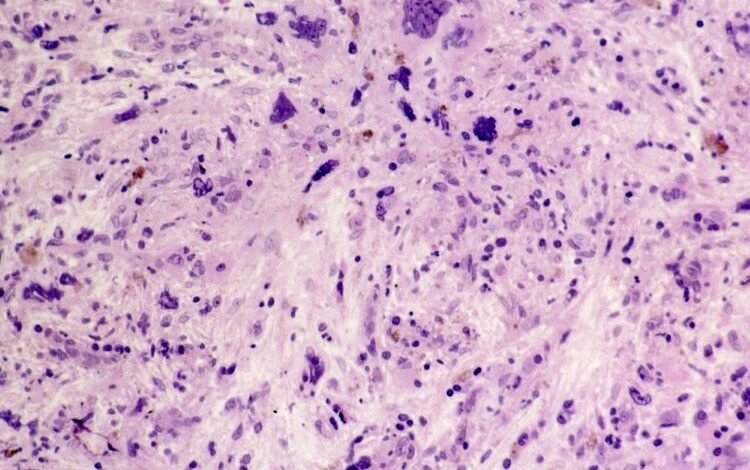Could GSK myelofibrosis treatment gain EU-first approval?

If approved, momelotinib will be the first treatment in the EU indicated for myelofibrosis patients with moderate to severe anaemia.
The Committee for Medicinal Products for Human Use (CHMP) of the European Medicines Agency (EMA) has adopted a positive opinion for GSK’s momelotinib, recommending marketing approval. The Committee deemed it beneficial as a treatment for disease-related splenomegaly (enlarged spleen) or symptoms in adults with moderate to severe anaemia who have primary myelofibrosis, post polycythaemia vera myelofibrosis or post essential thrombocythaemia myelofibrosis and who are Janus kinase (JAK) inhibitor naïve or have been treated with ruxolitinib.
Steps to a novel EU approval of momelotinib
If approved, momelotinib would be the only medicine in EU indicated for both newly diagnosed and previously treated myelofibrosis patients with moderate to severe anaemia that addresses splenomegaly and symptoms. It would be sold under the proposed trade name Omjjara.
“Momelotinib has a differentiated mechanism of action that may address the significant medical needs of myelofibrosis patients, especially those with moderate to severe anaemia… This positive CHMP opinion is a significant step in bringing momelotinib to patients in the EU with this difficult-to-treat blood cancer,” Nina Mojas, Senior Vice President, Oncology Global Product Strategy, GSK commented.
According to GSK, the positive CHMP opinion is supported by data from the pivotal Phase III MOMENTUM study, which evaluated the safety and efficacy of momelotinib versus danazol for the treatment and reduction of key manifestations of myelofibrosis in an anaemic, symptomatic, JAK inhibitor-experienced population.
The pharmaceutical company also highlighted that the decision was additionally supported by data from a subpopulation of adult patients with moderate to severe anaemia from the SIMPLIFY-1 Phase III trial. This trial aimed to evaluate the efficacy and safety of momelotinib versus ruxolitinib for myelofibrosis in those who had not received a prior JAK-inhibitor therapy.
In these clinical trials, the most common adverse reactions were diarrhoea, thrombocytopaenia, nausea, headache, dizziness, fatigue, asthenia, abdominal pain and cough.
GSK shared that a decision on marketing authorisation for momelotinib in the EU is expected by early 2024.
Source link
#GSK #myelofibrosis #treatment #gain #EUfirst #approval